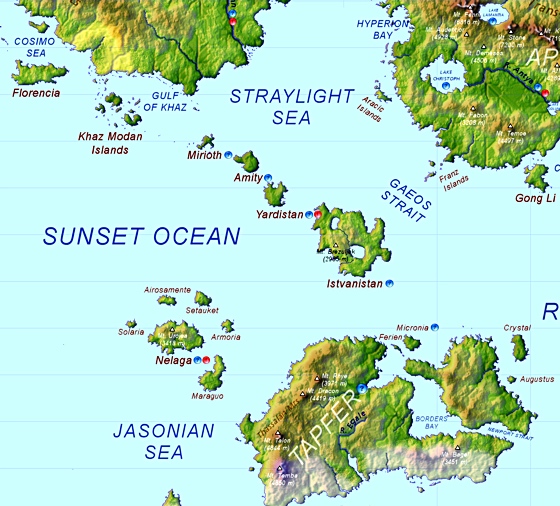
This page is unfinished. It may be a mere placeholder in the book outline. Or, the text below (if any) may be a summary, or a discussion of what the page will say, or a partial or rough draft.
If subculturalism had worked, Archipelago would have been its natural political expression. Understanding why each cannot work casts light on the other—and on how we can do better in the fluid mode.
I have stolen the term “Archipelago” from a brilliant essay by Scott Alexander, “Archipelago and Atomic Communitarianism.” Mostly this page will encourage you to go read that. I’ll also give a bit of a summary, and draw out the connections with subculturalism (which he also made explicit, but not in as much detail).
(The nautical implications of “archipelago” also fit with the sea-of-meaningness trope I have stolen from Will Buckingham’s Finding Our Sea-Legs, which inspired my description of the “fluid mode” and my caricaturing the countercultures as “wrecked galleons.”)
The ultra-condensed summary of Archipelago is this. People have radically different opinions about how society should be organized. Probably many of these ideas are right—for different sorts of people. So, ideally, everyone who wants to live in a fundamentalist theocracy can go do that, and everyone who wants to live in a socialist welfare state can go do that, and everyone who wants to live in rationalist capitalist minarchy can go do that. If we had many spare islands, each type of society could set up on a different one, and not step on each others’ toes. We don’t, so there would need to be an overarching governmental structure whose main job was to keep the different systems from interfering with each other.
As Alexander writes, Archipelago “doesn’t look like a practical solution for real problems.” However, “I do think it’s worth becoming more Archipelagian on the margin rather than less so, and that there are good ways to do it.”
I agree. So this page will use the Meaningness and Time framework to analyze the obstacles to Archipelagian developments, and to suggest possible approaches to working around them.
In terms of ideology (rather than practicalities) the principal obstacle is universalism. That is the idea that meanings must be the same for everyone, everywhere. The countercultures both took universalism to an extreme, and spawned the culture war that has plagued us since.
The countercultural mode is native for the Baby Boom generation. Currently, most major institutions (particularly governments) are led by Baby Boomers. Statistically, they are far more politically polarized than subsequent generations—because they are committed to universalism, and so to imposing their political vision on everyone else.
Over the next decade, Generation X will inherit control of states and other major institutions from the Baby Boomers. The subcultural mode is native for Generation X—which suggests that politics may soon shift toward a more Archipelagian, and less polarized, model. I think this will be a good thing!
In the meantime, Gen X has been, famously, “waiting on the world to change.” Compared with both Boomers and Millennials, Generation X has tended to sit out politics—because their subcultural orientation has had no possibility of political implementation.
